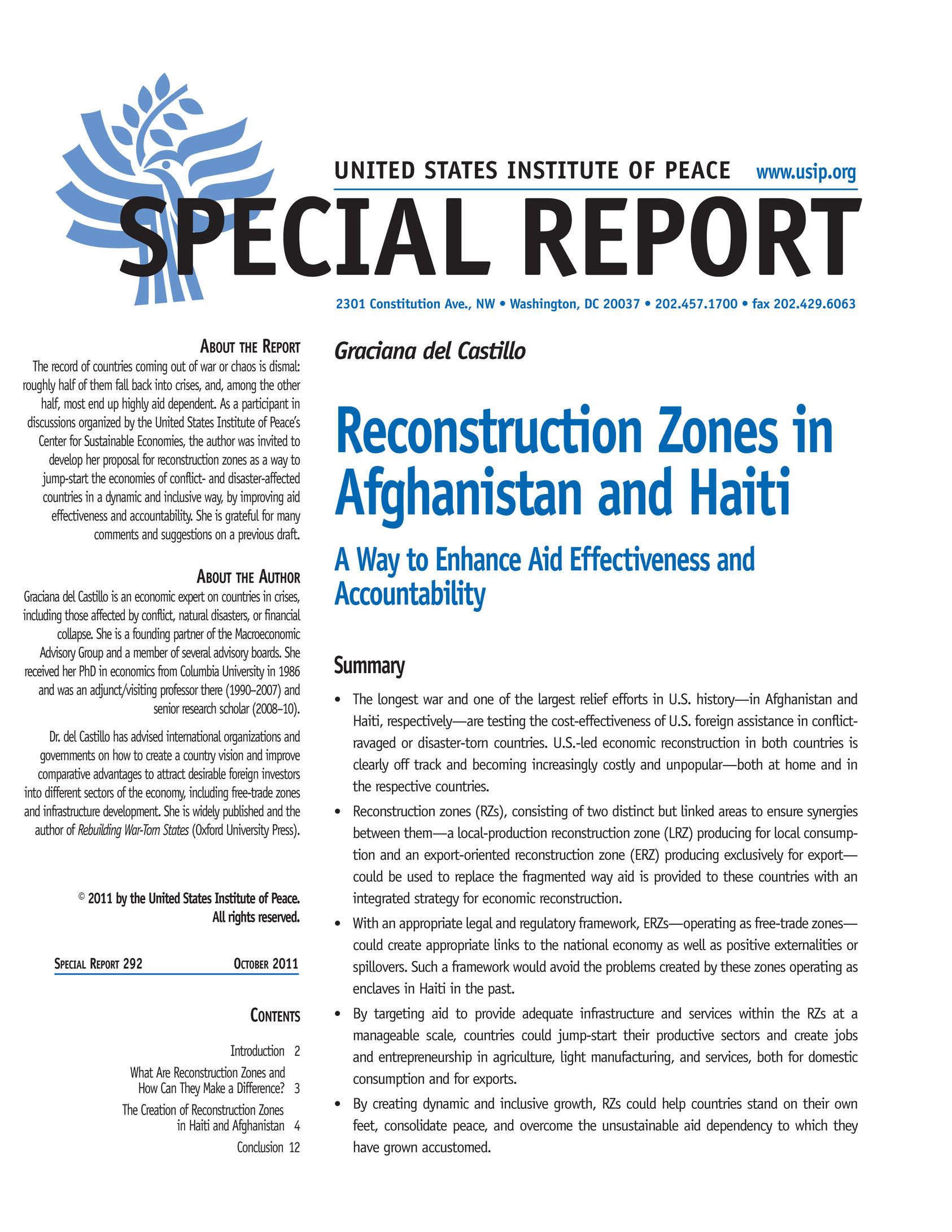Reconstruction Zones in Afghanistan and Haiti
The record of countries coming out of war or chaos is dismal: roughly half of them fall back into crisis. Among the other half, most end up highly aid dependent. The author of this Special Report was invited to develop her proposal for reconstruction zones as a way to jump-start the economies of conflict- and disaster-affected countries in a dynamic and inclusive way, by improving aid effectiveness and accountability.

Summary
- The longest war and one of the largest relief efforts in U.S. history—in Afghanistan and Haiti, respectively—are testing the cost-effectiveness of U.S. foreign assistance in conflict-ravaged or disaster-torn countries. U.S.-led economic reconstruction in both countries is clearly off track and becoming increasingly costly and unpopular—both at home and in the respective countries.
- Reconstruction zones (RZs), consisting of two distinct but linked areas to ensure synergies between them—a local-production reconstruction zone (LRZ) producing for local consumption and an export-oriented reconstruction zone (ERZ) producing exclusively for export—could be used to replace the fragmented way aid is provided to these countries with an integrated strategy for economic reconstruction.
- With an appropriate legal and regulatory framework, ERZs—operating as free-trade zones—could create appropriate links to the national economy as well as positive externalities or spillovers. Such a framework would avoid the problems created by these zones operating as enclaves in Haiti in the past.
- By targeting aid to provide adequate infrastructure and services within the RZs at a manageable scale, countries could jump-start their productive sectors and create jobs and entrepreneurship in agriculture, light manufacturing, and services, both for domestic consumption and for exports.
- By creating dynamic and inclusive growth, RZs could help countries stand on their own feet, consolidate peace, and overcome the unsustainable aid dependency to which they have grown accustomed.
About the Report
The record of countries coming out of war or chaos is dismal: roughly half of them fall back into crises, and, among the other half, most end up highly aid dependent. As a participant in discussions organized by the United States Institute of Peace’s Center for Sustainable Economies, the author was invited to develop her proposal for reconstruction zones as a way to jump-start the economies of conflict- and disaster-affected countries in a dynamic and inclusive way, by improving aid effectiveness and accountability. She is grateful for many comments and suggestions on a previous draft.



